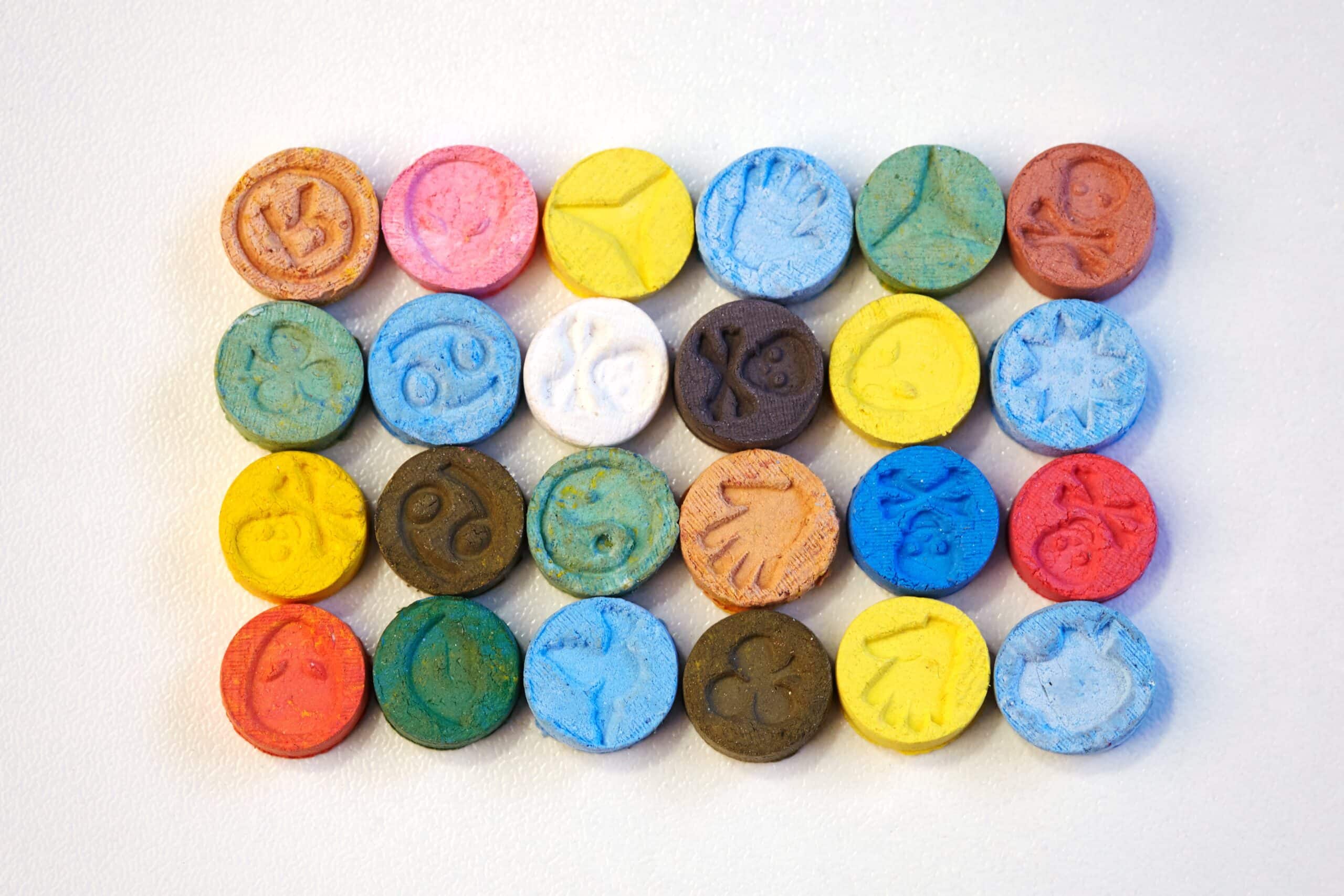
You may have heard that molly isn’t really that dangerous, or that molly addiction is nothing more than a myth. Please know that this information is far from accurate. Using molly can put you at risk for myriad physical and psychological problems, including addiction.
Molly is an alternate name for a synthetic substance called 3,4-methylenedioxymethamphetamine. This drug is often also referred to as MDMA, ecstasy, and E.
MDMA was first synthesized by a German chemist in the early 1900s. Several online sources report that the drug was originally developed as an appetite suppressant, but a systematic review of 60 years’ worth of records from Merck (the company that was responsible for creating MDMA) has revealed that those claims are untrue.
In the United States, molly is currently classified as a Schedule I controlled substance. This means that, in the opinion of the Drug Enforcement Agency (DEA), it has no accepted use in medical procedures and also poses a high risk of abuse.
Today, molly is primarily used as a recreational substance. It is often included in the informal category of club drugs, along with Rohypnol, GHB, and ketamine.
Molly has both stimulant and hallucinogenic effects. When a person ingests the drug, it typically takes about 30 minutes for them to feel these effects, which can include:
In addition to these pleasurable effects, someone who takes molly may also experience:
Following their onset, molly’s effects typically peak within about 15 minutes and usually last for about two to four hours.
Abusing molly even once can lead to devastating outcomes, and using the drug multiple times can increase a person’s risk for lasting damage. Can this extensive harm include the development of molly addiction? We’ll answer that question in the next section.
Given the drug’s powerful effects, it is natural to worry about the risk of developing an addiction to molly, especially if you use it frequently.
The good news is that molly doesn’t pose the same risk of addiction as other commonly abused substances – such as alcohol, stimulants, and opioids – do. The bad news is that even though molly addiction is relatively rare, it can occur.
As we established in the previous section, molly abuse can expose you to both physical and psychological harm. A complete list of all dangers associated with MDMA use should definitely include the potential risk of addiction to molly.
The two main signs of molly addiction are tolerance and withdrawal:
Someone who has developed an addiction to molly may also exhibit signs such as:
Molly addiction can put a person at risk for various types of harm, including:
Also, the disorientation and increased sense of connection that are characteristic of molly abuse can also put people in danger of being sexually assaulted or otherwise victimized.
If you have been unsuccessful in your attempts to stop using molly, it may be time to start thinking about professional treatment.
Effective treatment for molly addiction can take many forms, depending on your specific needs, goals, and expectations. There’s no such thing as a “perfect program” that works for everyone, so you will want to focus on finding the option that’s best for you.
If you have been experiencing particularly intense withdrawal symptoms when you try to end your molly use, a detoxification (detox) program may be the best place to begin your recovery journey.
After you’ve completed detox, you may transfer into one of the following programs:
Some people only spend time in one of these programs, while others receive care in several or all of them. Again, there is no right or wrong way to recover from molly addiction. The best path forward is whichever one is right for you.
Within these programs, you may participate in a variety of therapies and support services, such as:
As you prepare to transition out of treatment, you should receive a detailed discharge plan, which can connect you with the services that will support your continued recovery efforts in the months and years to come.
If you have become dependent on molly or any other addictive substances, LA Detox is here to help.
Our team will work with you to understand the full scope of your needs, identify your short- and long-term goals, and develop a customized plan to help you end your molly use for good, so that you can live a healthier life in recovery.
To learn more or to schedule a free assessment, please visit our Contact page or call us today.
How long does cocaine stay in your system – and why do some people test…
It’s a sweet, syrupy mixture that has been celebrated in rap music for decades. But…
Meaningful discussions of LGBTQ+ and addiction must address the unique challenges faced by members of…
Alcohol abuse can put a person at risk for a broad scope of serious health…
In certain circumstances, stimulants such as dextroamphetamine and Adderall can help a person experience improved…
SMART Recovery is an alternative to AA and NA for people who are looking for…
This website uses cookies.